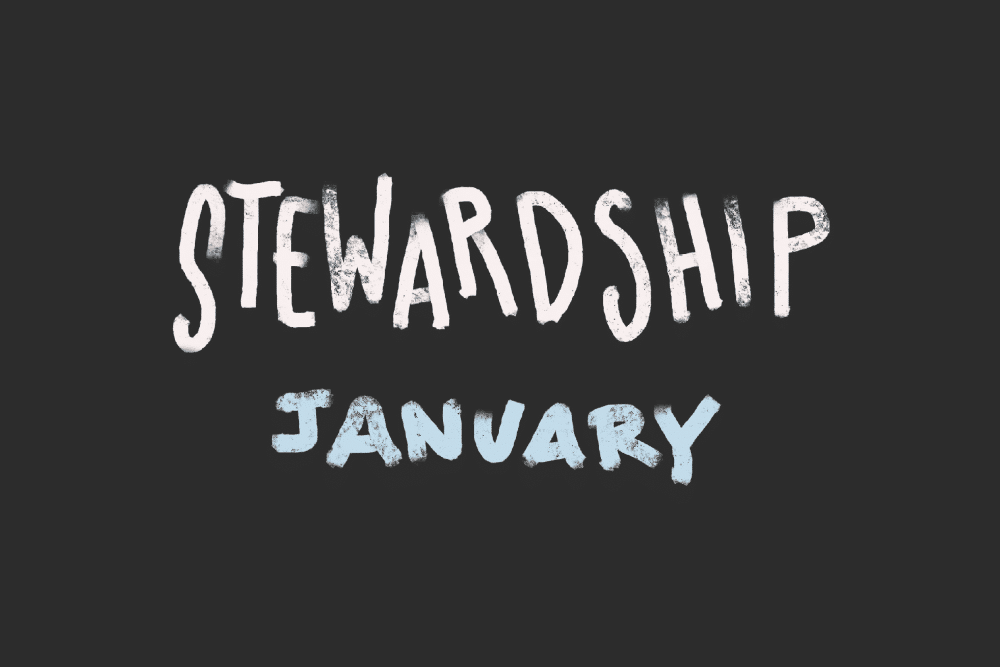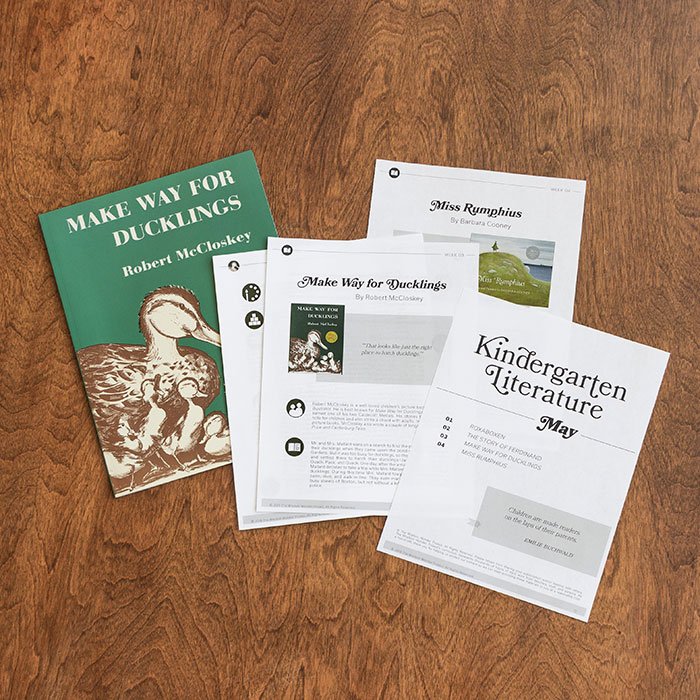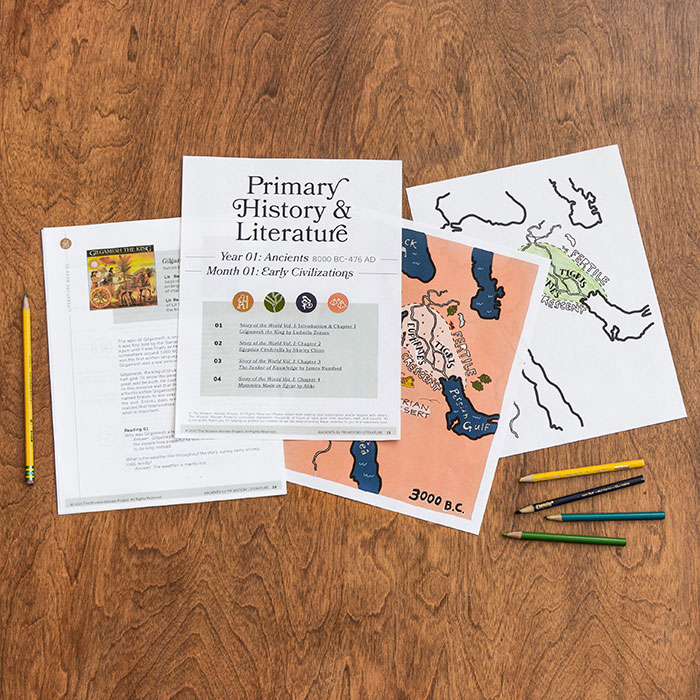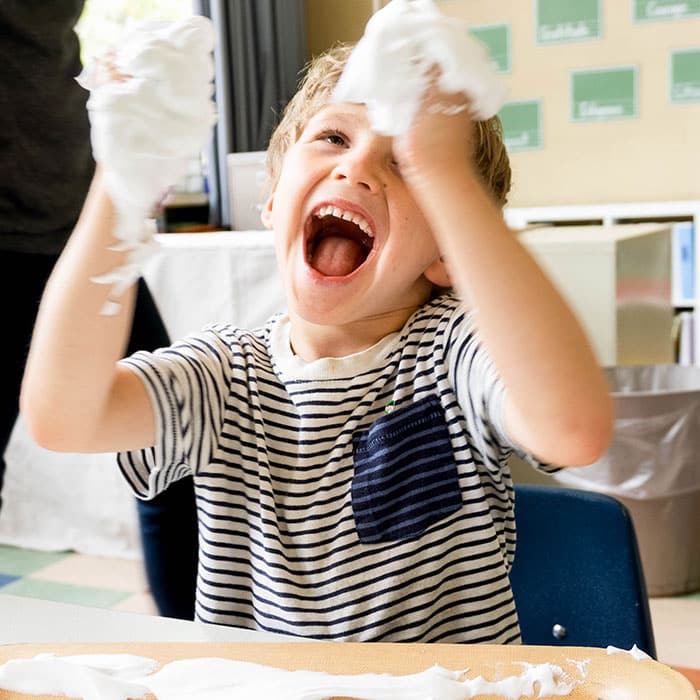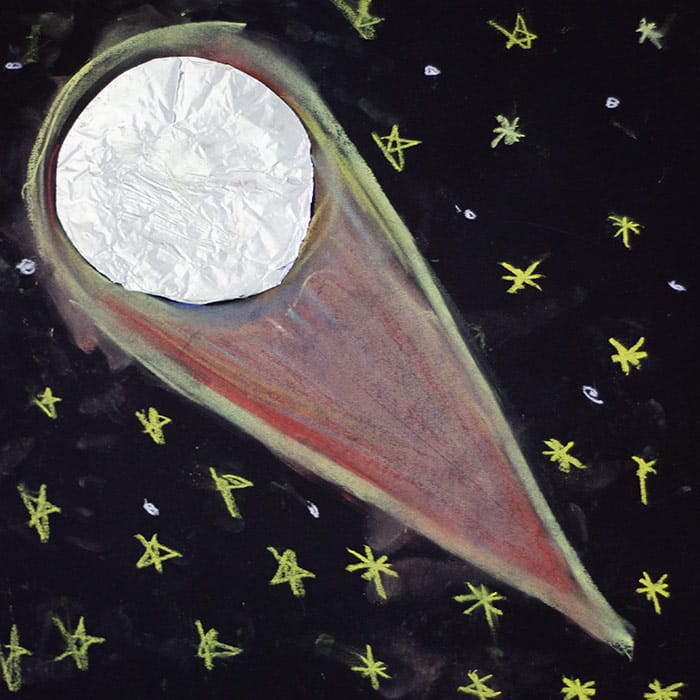When we think about stewardship, some of us usually think about managing money, and though it’s certainly a good idea to teach kids how to make wise financial choices, perhaps you could broaden the conversation to other areas of stewardship. Even young children can understand the concept of managing one’s mind and thoughts, bodies, time, property, and environment. When we practice careful management of these things, it results in creating beauty and good around us. The pursuit of these things especially at a young age creates people who create good change in the world because they are able to manage themselves and resources well.
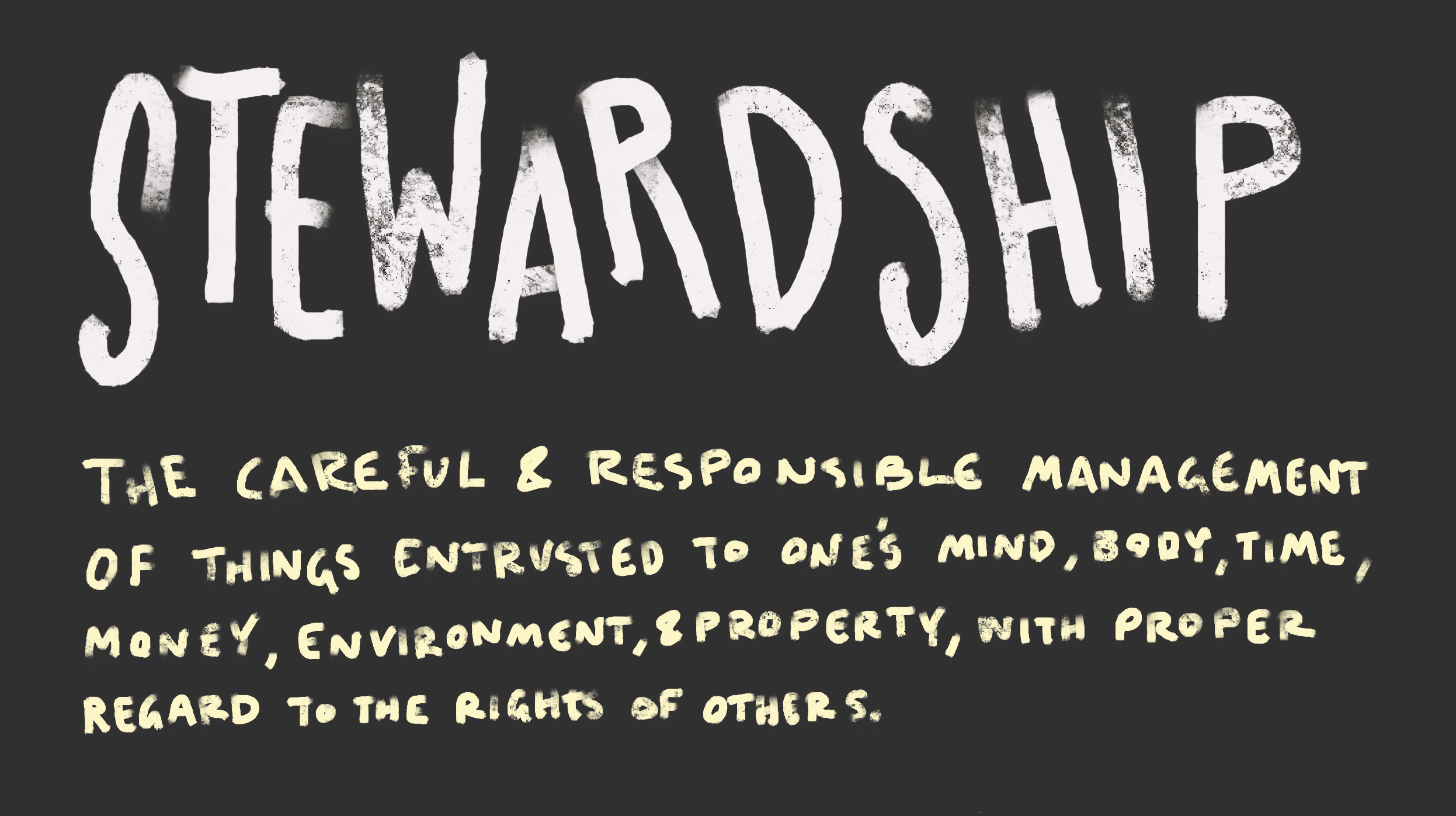
For kids, the full definition of stewardship is a lot for their minds. They can think of it simply as, “Take care of your stuff, take care of their stuff.” I know in my own household, this phrase can be used in so many different ways to teach stewardship. From eating at the table so we can take care of our furniture (raise your hand if you’ve cleaned up a milk and cheerios from the couch a million times), to not watching certain shows because the scariness causes anxiety and bad dreams. Start the conversation with the small things, for small things add up to big things.

Of course, children must also see this modeled in their parents, we must take the opportunity to explain to our children why we spend our money the way we do, or why we exercise, why we take an afternoon to serve the people around us, etc. These conversations will open up an opportunity for discussion not just about our actions but our hearts and our character.
Ariostotle puts it this way: “What is common to many is taken least care of, for all men have greater regard for what is their own than for what they possess in common with others.”

So how do we start fostering this character trait within ourselves and our children? Below you will find some discussion questions and activities to promote stewardship within your home:
- What does it mean to be a good steward of your mind? Some might say it’s important to nurture our minds with good things. As the old adage goes “Garbage in, garbage out”. Consider what you’re feeding your mind and ways you might expand your mind.
- Create a list of ways you take care of your body (eating healthy, exercising, stretching, etc.), ask your children to pick one of these each week and have the whole family focus on it together. Come up with fun ways to make it happen! If you’re focusing on eating healthy, get them in the kitchen to make the blueberry and spinach smoothie! Offer to walk a neighbors dog each day when you focus on exercise. Enjoy taking care of your bodies together.
- Time is precious, so consider how you spend it. Are there ways you can possibly accomplish a new goal you have this year if you make better use of your time?
- What does it look like to be a good steward of your finances? What are some new habits you’d like to form this year with regard to your finances?
- If you don’t already give your kids an allowance, start giving them a sum each week for them to steward. If they’re little, show them how to split up the funds without a calculator. If they’re old enough to learn a calculator, instruct them in how to calculate basic percentages. Have them practice splitting the funds up for giving, gifting, saving, and spending. Depending on age, have them keep track in a spreadsheet so that at the end of a year, they can add up how much they have given away or saved to measure their impact.
- How do you treat the things you accumulate, both small and large? Are you a good steward of your property – do you keep them tidy, well-maintained, and in order? Maybe it’s time to organize a closet or drawer.
- One of the best ways to be a good steward of your property is to start before you even own something – be intentional about your purchases this month. Shopping intentionally could mean first asking yourself the following questions: Do you really need it? Is this the best brand to shop from, or is there one that aligns more with my values? Will this item last long, or is there a better quality version available elsewhere? Do you have space to store this item in your home?
- Make a list of ways your family can be more intentional about being a better steward of our environment? Put together an idea board together as a family, and choose one or two actions to take this month. Here are some ideas: Buy food directly from a local farm, start to compost, or try biking to school this month instead of driving. There are so many small (and big) things you can do to make a difference!
- As you think of ways to be a good steward of our environment, consider this quote by Jane Goodall: “What’s the point of working so hard, fighting for the environment, if we’re not raising new generations to be better stewards than we are. If we only listened to them, we’d realize that they know the problems and are so energetic about addressing them.”
- Pick a literature character to discuss stewardship (for a few suggestions, refer to our Stewardship Book List). As you read with your students, look for opportunities to promote these discussions.
 Another way to keep this character trait of the month top of mind is to print and hang our Stewardship poster! Click here to download.
Another way to keep this character trait of the month top of mind is to print and hang our Stewardship poster! Click here to download.
Want more resources? Read Teaching Character Through Literature: Stewardship.
